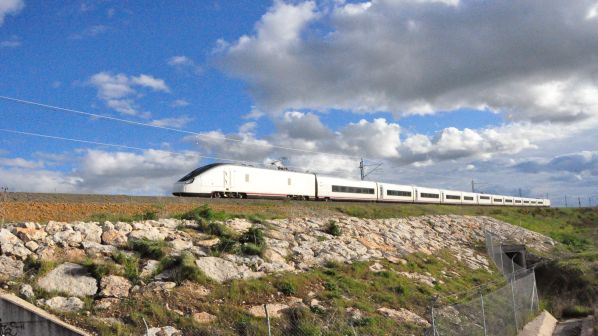THE board of directors of Spanish national operator Renfe has approved the Renfe28 project, which aims to better position the company to address the challenges posed by liberalisation across its various business segments over the next four years.
Innovation and digitalisation are described as the most important levers to improve Renfe’s competitiveness in the plan presented to the board by Renfe president, Mr Raül Blanco, on January 12. Blanco is also set to make several new appointments to the board in the near future.
Renfe says is also looking to improve the effectiveness of its management processes, optimise the use of its resources while guaranteeing the future sustainability of its businesses, placing both customers and staff at the centre of its activities.
Among its objectives are reinforcing its position as Spain’s leading long-distance high-speed operator and as “the benchmark” for customer service, and improving the financial performance of its freight division.
Renfe28 reinforces the objectives of Renfe’s existing Strategic Plan and restructures several of the company’s internal divisions to align with these objectives.
In addition, Renfe International will be consolidated as a public limited company that is fully owned by Renfe Group. The existing General Safety, Organisation and Human Resources Department will be transitioned to a new General Organisation and Talent Department. This division will focus on promoting human resource management, as well as leading the search for new internal and external talent and renewing the workforce as Renfe undergoes the most significant staff transformation in its history.
Finally, all activities related to safety, including traffic, operations and worker and passenger safety, and cybersecurity are integrated into a General Business and Operations Department. Renfe says this will enable its passenger and freight as well as engineering and maintenance and rolling stock leasing businesses to directly develop these functions within their respective activities.
Recent investment

The plan also sets objectives for improved performance across all of Renfe’s business divisions in order to maximise recent investment.
Suburban and medium-distance: the first of 406 new trains from various orders placed in recent years will enter service in 2024 and Renfe says the “enormous investment” in Europe’s “most modern” public service train fleet must consolidate the company as the reference operator ahead of the liberalisation of these services, which is scheduled before 2033.
Long-distance high-speed: Renfe says the upcoming launch of the first of its new fleet of high-speed trains built by Talgo in March will improve its offer in the already-liberalised long-distance market where it competes with Iryo and Ouigo. Spanish transport minister, Mr Oscar Puente, confirmed that the first class 106 trains will enter service on lines from Madrid to Galicia and Asturias this spring in December. Renfe had hoped to introduce the trains from November.
Freight: Renfe is aiming to transform its freight division into a “comprehensive logistics operator,” with the goal of improving financial performance and ensuring its future sustainability.
Engineering and maintenance: the introduction into service of new high-speed trains equipped with the latest diagnostics technology will enable Renfe to restructure its industrial activities across Spain and enable the company to offer the most attractive services on the market while creating direct and indirect jobs.
International presence: Renfe28 places a strong emphasis on growing business outside Spain, building on the recent success of Leo Express in Central Europe and Renfe’s work in North America, where it is a strategic partner in the Texas Central high-speed project in the United States and shadow operator for the Mayan Train project in Mexico. Renfe is targeting both long-distance passenger services and upcoming tenders for public service obligation (PSO) contracts and aims to boost turnover through the widespread implementation of its management.



